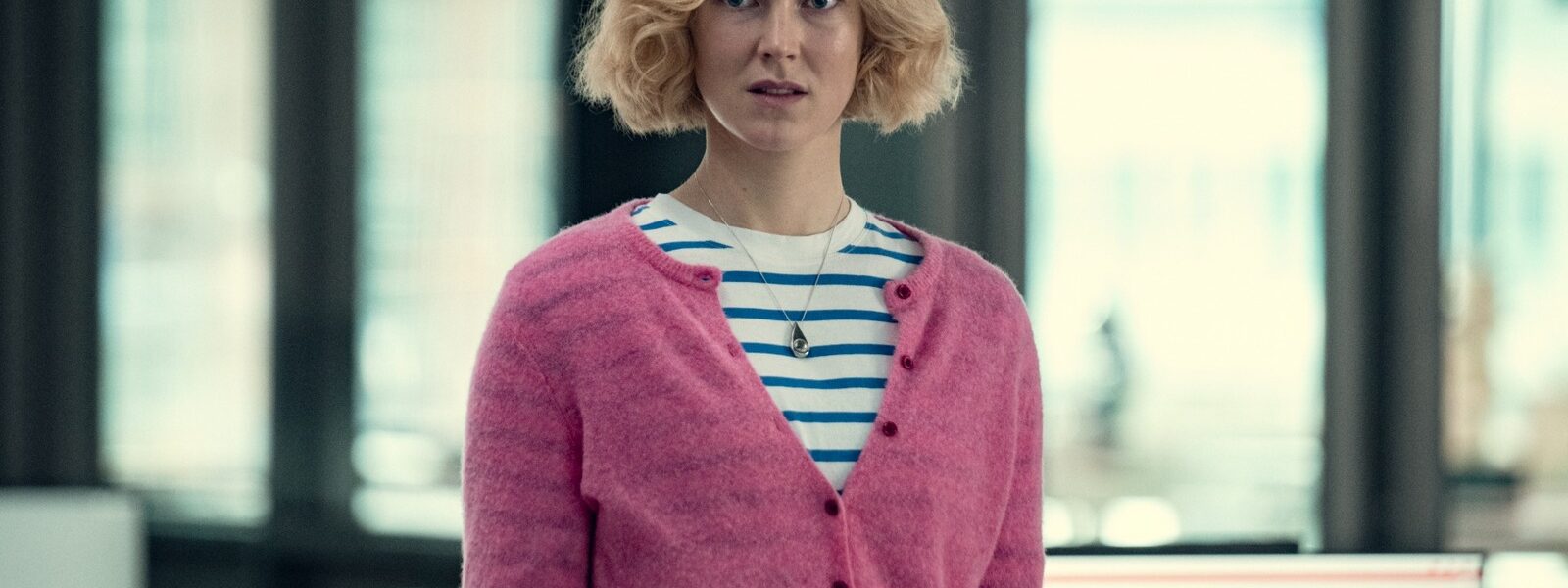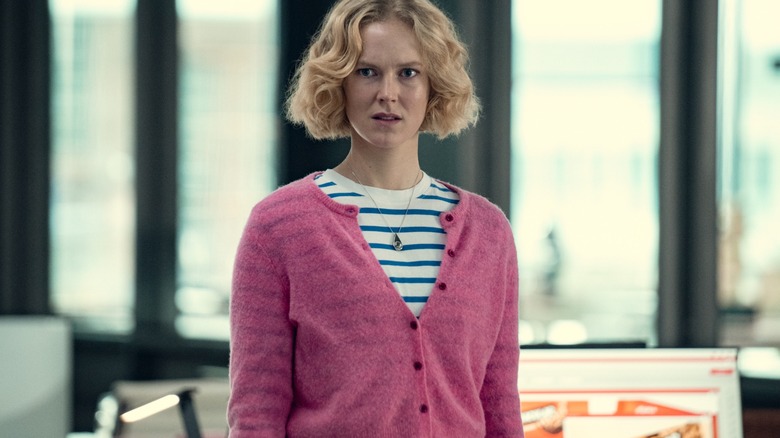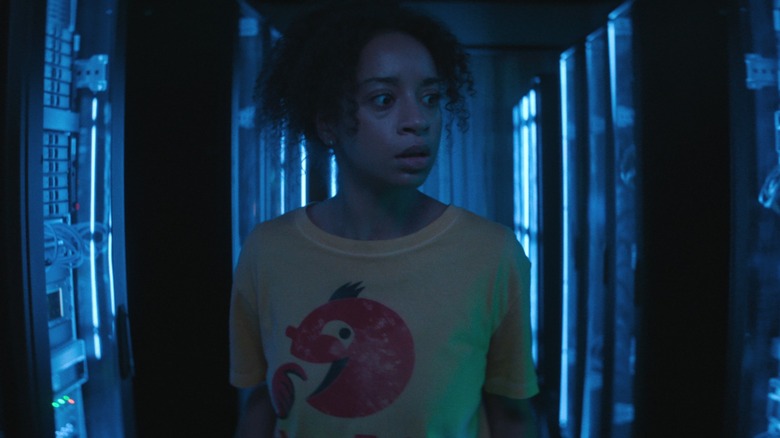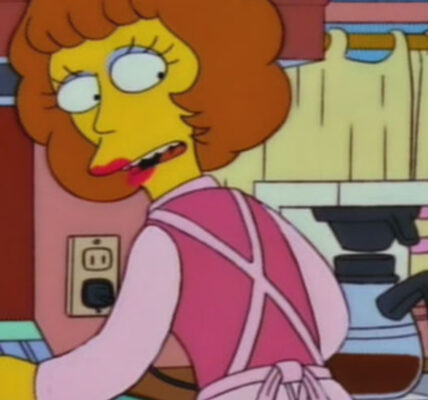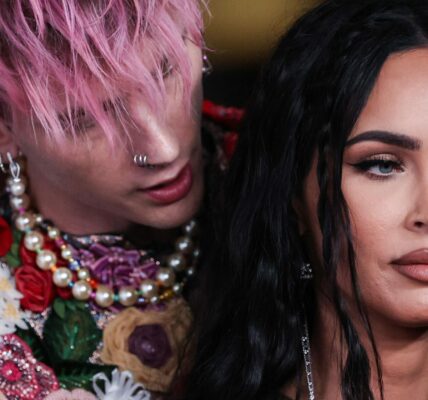This message contains spoilers For season 7 of “Black Mirror”.
When “Black Mirror” by Charlie Brooker broke into the scene in 2011, He had a finger on the pulse of everything related to speculative fiction. Think of the bytes of the most stimulating dystopian history in the anthology format, exploring everything, of the confidentiality of data and consumer identity to the virtual fields of consciousness in a science fiction framework. Even the most intermediate episodes were supported by a valid vision, because each story highlighted an essential truth. A drop in quality, however, was apparent at the time Season 6 rolled, which has already extended the premise to its limits. Season 7 seems to have followed the traces of its predecessor, offering a mixture of disappointing tales that do not create a lasting impression. It’s almost as if “Black Mirror” had lost its edge.
Advertisement
That said, the last season has a handful of episodes that explore a solid premise. “Bane” by Toby Haynes is one of themAdopt an interesting (so predictable) approach to the concept of modified reality. The episode opens with the WHIZ Maria confectionery (SIENA KELLLY) terging her last batch of chocolates of MISO jam (!) With her boyfriend, Kae (Michael Workeye). Maria seems to have her life to understand: she is the director of the development of a chocolate company, where her ready -to -use artistic talent is deeply appreciated. During a group of groups that treat its share of Miso jam treats at the office, a familiar face appears. Verity (Rosy McEwen), who went to the same school as Maria, appears during the tests, alone improving the group’s opinion on the batch of candies, which was badly received at the beginning.
Advertisement
Did “Bane black” set up an emotional meeting, or do it frame the arrival of Verity as harmful? Given the anthology series of Penchant for Grim Storytelling, the episode leans towards the latter, creating situations which evoke a paranoia stretched for Marie and the public. The very nature of reality is questioned, as well as the credibility of Mary as a protagonist, because the facts and fiction are blurred in a chaotic mess. Just when you think that the episode has done a decent job to use his narrative ace, he gushes a lazy lazy end that ruined everything for which he worked hard. Let’s talk about it.
The end of bane strips the episode of its scattered merits
Maria establishes a categorical personal belief from the start: there is something “off” by Verity, because she was unpopular geek in high school which spent most of her time in computer class. This evaluation, of course, cannot be taken at its nominal value, because Maria’s conversations on the truth are extremely revealing of her own insecurity and her tendencies for average girls. If anything, Verity was that victim of intimidation by popular people like Maria in school, forced to exist on the fringes while making fun. This aspect of the character of Maria seems quite transparent when she reacts negatively to Verity hired as research assistant in her business, where her deeply anchored prejudices on women begin to appear a little vindictive.
Advertisement
Although Maria’s faults are rooted in the truth (which forces us to reassess his assertions on the truth), the episode gradually reveals the reverse of reality. As the week progresses, Maria’s life takes a worse turn, where small details about her life change in the blink of an eye. A chicken boutique (which Maria has known for years) changes as if by magic her name (a subversive use of the Mandela effect), and an ingredient based on algae that she mentions in an email turns into a non-pork ingredient. For obvious reasons, she blames Verity, who seems in distress due to Maria’s increasingly paranoid behavior. When the culmination takes place, we learn what we have guessed from the start. Verity is malicious as devil and is there to take revenge after having controlled a way to modify reality on a whim.
Advertisement
Predictability could be the name of the game in “bane black”, but it is close to exploring interesting questions about relaxed cruelty and its consequences for life. People like Maria could deliberately erase the poorly recommendable aspects of their past as they grow up, but those affected by her cruelty will always remember. Verity arms her intelligence against her intimidators, using her to be the one she wants, including a silhouette worthy of worship. But these founded themes are sidelined at the end, where Maria shoots Verity and uses the manipulation signal to become … “The Empress of the Universe”. This ridiculous notion is interpreted with a poor quality CGI, thousands of adorators on knees and a deaf turn on a story that almost had a point that deserves to be considered.
This end does not give us anything. It is a shallow cop to escape the responsibility of Maria, who is now on a megalomaniac trip with endless possibilities instead of facing consequences or developing as an individual. There are also no fascinating science fiction tropes used here, because Verity’s mind-boggling invention is only a macguffin which quickly passed over in silence. Essentially, “bane” feels quite empty, and her momentum is derailed when Maria presses the button sentenced on one of Verity’s pendant remote controls.
Advertisement
